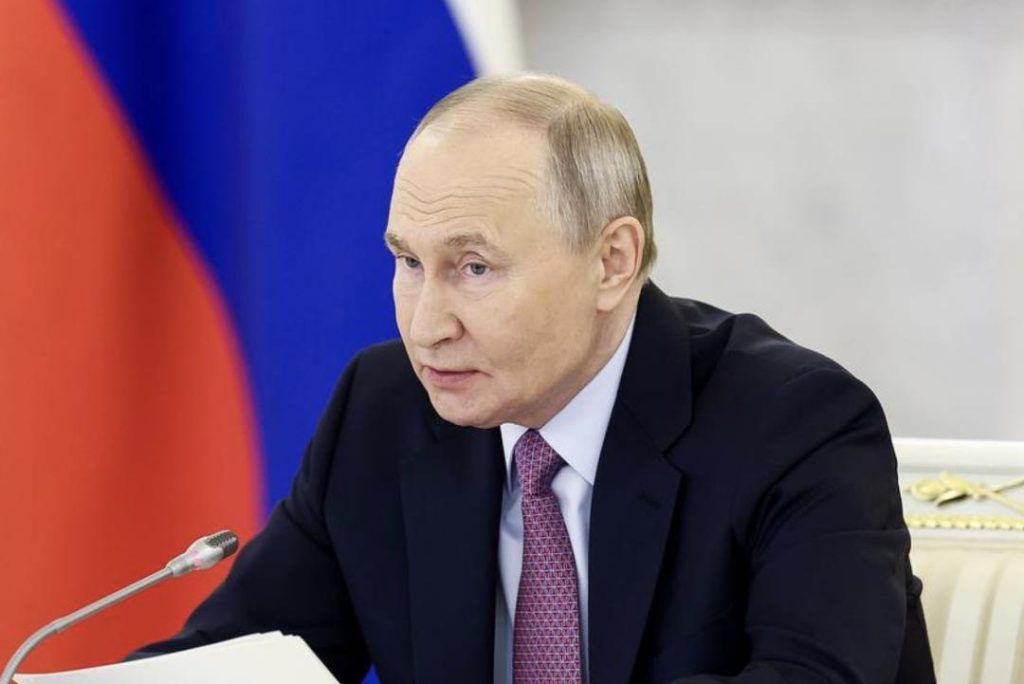
Russia & US in Talks on Cooperation in Arctic, Alaska: Putin
In a recent statement, Russian President Vladimir Putin announced that Russia and the United States are engaging in discussions regarding potential cooperation in Russia’s Arctic zone and the US state of Alaska. This development comes as a significant step towards strengthening bilateral relations and exploring new opportunities for mutual benefit.
According to Putin, Russia possesses cutting-edge technologies that are of interest to its international partners, including the US. He highlighted that Novatek, Russia’s largest liquefied natural gas (LNG) producer, is already operating in the Arctic region. This existing presence and expertise could serve as a foundation for future cooperation.
The Russian President emphasized the significance of the Arctic region, stating that it holds vast natural resources and immense economic potential. The region is rich in oil, gas, and minerals, making it an attractive area for exploration and development. Putin’s statement suggests that Russia is open to collaborating with the US to tap into these resources and capitalize on the region’s economic potential.
The potential for cooperation between Russia and the US in the Arctic region is vast and varied. The two nations could work together on joint projects, such as offshore drilling, pipeline construction, and infrastructure development. This collaboration would not only benefit both countries economically but also enhance their environmental and scientific research capabilities.
One of the most significant areas of potential cooperation is in the field of LNG production. Russia is already a major player in the global LNG market, with Novatek being one of the largest producers. The US is also a significant producer of LNG, with many projects underway to develop new facilities. By working together, Russia and the US could share knowledge, expertise, and resources to develop new and innovative LNG technologies.
In addition to economic benefits, cooperation in the Arctic region could also have significant environmental and scientific implications. The region is prone to climate change, which has significant implications for both nations. By working together, Russia and the US could share knowledge and expertise to better understand and mitigate the effects of climate change in the region.
Another area of potential cooperation is in the field of infrastructure development. The Arctic region is vast and remote, with many areas lacking modern infrastructure. By working together, Russia and the US could develop new roads, bridges, and ports to facilitate transportation and commerce in the region.
The potential benefits of cooperation between Russia and the US in the Arctic region are significant. By working together, the two nations could strengthen their bilateral relations, enhance their economic prospects, and advance their scientific and environmental research capabilities.
However, there are also potential challenges and risks associated with cooperation in the Arctic region. One of the main concerns is the impact of climate change on the region’s fragile ecosystem. The melting of sea ice and permafrost could have significant consequences for the region’s biodiversity and ecosystem.
Another challenge is the potential for competition and conflict in the region. The Arctic region is rich in natural resources, and many nations, including Russia, the US, Canada, and China, are vying for access to these resources. This competition could lead to tensions and conflicts between nations, making cooperation and diplomacy crucial.
In conclusion, the announcement by Putin that Russia and the US are in talks on cooperation in Russia’s Arctic zone and US’ Alaska is a significant development. The potential benefits of cooperation are vast, including economic benefits, enhanced scientific and environmental research capabilities, and strengthened bilateral relations. However, there are also potential challenges and risks associated with cooperation in the region. It is essential that both nations approach this cooperation with caution, diplomacy, and a commitment to mutual benefit.



